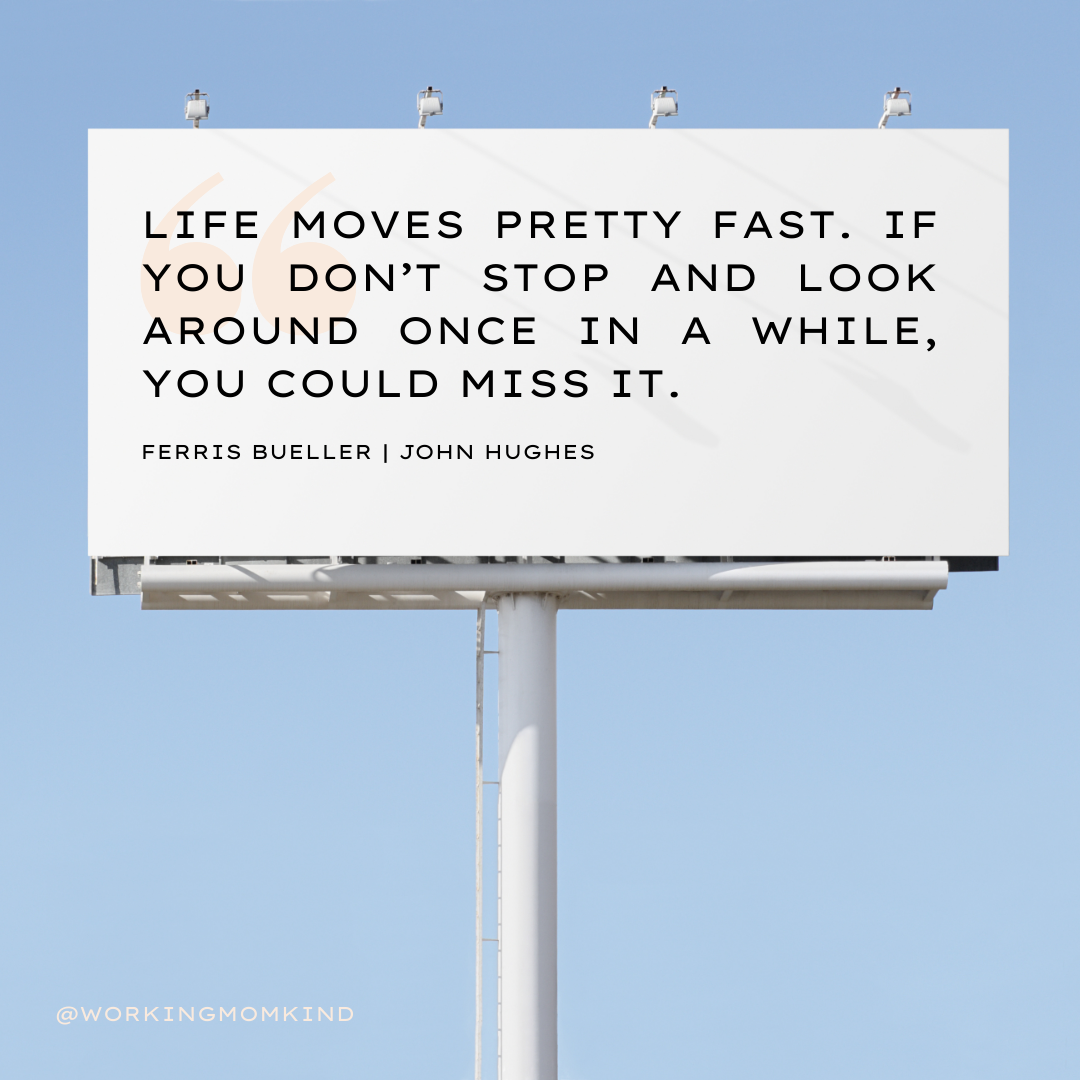How Overcoming Urgency Can Help Your Career, Your Kids, and Yourself
I used to half-jokingly brag about having such a Type A personality that I was “Type A+” – a term I felt captured my high-achieving tendencies and fast-paced productivity. I was proud to be responsive, reliable, and someone who could rapidly yet comprehensively complete a task. And yet my to-do list was never complete. Instead of feeling satisfied with what I had accomplished, I almost always felt anxious about what else I had to do. Everything felt urgent, and I realized that I felt burnt out. Type A personalities in women are often linked to high levels of stress and tension. A New Yorker who appreciated an accelerated lifestyle, I realized I needed to slow down in many ways to be happier.
Women are socialized to please others, resulting in (internal and external) pressure to immediately and invariably be available. I see this tendency in clients and friends, whether or not they are mothers and whether or not they work for pay. In my work now, I help working moms and others alleviate burnout by helping them prioritize what they have to do and what they want to do to lead fulfilling lives. Some slowing-down strategies include:
Be intentional
We all have 24 hours each day (a good chunk should be dedicated to sleep). So be thoughtful and try to focus on one thing at a time. Some people prefer to organize their tasks in an “Eisenhower Matrix” based on urgency and importance. I like categorizing to-do lists based on actual deadlines: ASAP vs. Later vs. Long-term. Another great strategy is setting aside time for specific tasks, like replying to administrative emails; once that hour is over, it’s important to move on to actual work or whatever is time-sensitive or perhaps just more interesting. There will always be emails to reply to and chores to do, and very few things are truly urgent.
Consider your why
Are you upholding your values when you need to get something done quickly? For example, I worked with a woman stressed about her job; she had been approved for a day off, and during the few hours she was traveling that day by plane with no WiFi, she got reprimanded for not responding to an email from her manager (who was aware she was officially out of the office and could have received the answer the following day without issue). She knew she hadn’t done anything wrong but was made to feel guilty, lazy, and selfish. We looked at the bigger picture together: Was this the kind of company she could see herself contributing to for many years? Absolutely not, and she soon began looking for (and shortly after that found) a better environment. “The conditions for job burnout include overwork, lack of autonomy, values conflicts, lack of reward, and injustice,” explains behavior scientist and podcast host Dr. Jacqueline Kerr. “And women who experience job burnout – often exacerbated by the maternal wall or motherhood penalty – usually end up changing their jobs. So employers risk losing valuable talent and experiencing the costs of re-hiring.” Corporate cultures prioritizing urgency over well-being are on the wrong side of history.
Remember that fast is not always effective
Have you ever sent a message in a rush to respond and a mere few minutes later thought: “I should have said something else!” or “I forgot to mention something!”? Have you ever rushed out the door to get the kids to school on time on a day you’re running late, and in your haste, you forgot the library books and maybe stubbed your toe? The frenetic energy created by a sense of urgency helps no one. “When we’re feeling anxious, burnt out, exhausted, or impatient, our kids can feel that from us,” advises therapist Allie Finkel, who specializes in supporting children and families. “So if you find yourself having less patience or feeling irritable, turn inwards and ask yourself what you need. Implementing a less urgent attitude gives us the power to pause, assess, and choose how to respond to a situation rather than react. And then you can work on repairing with your children and reminding them that you’re in charge of your feelings.”
Give yourself a break (figuratively and literally)
We tend to be our own worst critics, so I like to help women overcome cognitive distortions (i.e., faulty or inaccurate perceptions) and focus on evidence. Is anything bad going to happen if you reply tomorrow instead of tonight? Most likely not, and if you are a manager yourself, thoughtfully avoiding 24/7 connectivity is one way you can model and support your team's mental health. Will your relationship with your child be damaged if you don’t drop everything you’re doing because your kiddo demands you play NOW? Giving them choices involving independent play is “incredibly important for setting a child up for success,” notes Finkel. She suggests: “Take three big deep breaths before responding to what feels like an urgent request from your child. You can tell them directly and calmly, ‘Mommy is doing something else right now. I can help you when I’m finished. I know it’s hard to wait. You can do XYZ until I’m done.’”
Ask for help and advocate for change
Like many women I know, I used to put unreasonable expectations on myself. In reality, I needed to access and then accept more support. Dr. Kerr explains, “Do less can be hard advice to follow, especially for someone whose self-worth is tied up in being productive and needed.” Acknowledging that you need support (you're only human, after all) is a significant first step in reducing stressors, increasing resources, and empowering yourself. “Also, realizing that you are not to blame for the mess that is working motherhood culture in individualistic America will hopefully help you have more self-compassion and connect with other women advocating for better conditions,” says Dr. Kerr.
Slowing down may take some getting used to; in fact, implementing the practice (and it does take practice) can be considered a form of exposure therapy. It’s essential to develop distress tolerance tools to get more comfortable with uncomfortable behaviors like setting boundaries. Reframing can also be powerful: a coach once told me to make a “ta-da list” reflecting all the things I’d done instead of a “to-do list,” and I love this advice! Finally, think about the effects of always rushing to the next agenda item — you could miss out on appreciating the present. As a millennial, I grew up with advice from Ferris Bueller that I now take to heart: “Life moves pretty fast. If you don’t stop and look around once in a while, you could miss it.”


